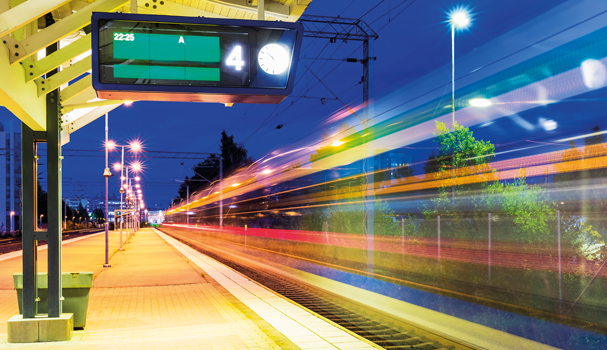As government policies go, the planned HS2 high-speed rail network between London, Birmingham Leeds and Manchester has been particularly divisive.
Originally touted under the previous Labour administration, the project has taken flight following a public consultation initiated by the coalition government.
However, despite announcing its intention to plough ahead with construction of the new rail network, the government has faced a number of legal challenges to its plans, whether it be from disgruntled environmentalists, animal rights activists or just the everyday taxpayer – it does come at a staggering cost of £46.2bn after all, and that is a mere estimate.
Parts of the business community have also voiced their opposition to HS2. Only last week the Institute of Directors (IOD) said it wasn’t convinced by the project, its members suggesting it offered little business sense and value for money. It also claimed the government’s projected expenditure paints only half the picture, and said a more realistic figure could be closer to £80bn.
Nevertheless, other business leaders have offered a more pragmatic view, insisting that the rail network is necessary, but only at a cost deemed reasonable to all concerned. One only wonders what the everyday entrepreneur must think of it all. Is there really a strong enough business case for HS2?
 “A burden on the business hub of London,” says Tim Stone, vice president of marketing (EMEA) at Polycom
“A burden on the business hub of London,” says Tim Stone, vice president of marketing (EMEA) at Polycom
There are many opinions flying around about HS2, but little is being said about the projected effects on congestion levels in London as the hub of British business.
It is anticipated that HS2 will result in a surge in the number of people working in London. This will be a burden on London’s public transport system, while also worsening the congestion levels. It will lead to increased spending on transport infrastructure – everything that the government is trying to avoid by building the HS2 route. It may open some business doors, but taking some of the external factors into account doesn’t paint a pretty picture.
Rather than letting London burst at the seams, we need to rethink our business culture. Many companies are now realising the benefits of remote and flexible working; like increased employee productivity, reduced costs from travel and office space and better work-life balance for employees. Instead of spending £80bn on HS2 and risking a dissatisfying and damaging ROI, we should focus on improving commutes throughout the country. This would boost the economy, make UK businesses more competitive long-term, and benefit all of the country – not just the few cities served by HS2.
 “Government hasn’t been forceful enough in making its case,” says Arnab Dutt, managing director of Texane
“Government hasn’t been forceful enough in making its case,” says Arnab Dutt, managing director of Texane
I think that the anti-HS2 campaign has successfully overwhelmed everyone to date. The government and rail industry haven’t been forceful enough in making the case for HS2. If we don’t invest in HS2, our network grinds to a halt in 2050. There will simply not be enough capacity for the huge growth in passengers and rail freight.
In my view, they are taking far too long to implement HS2. We should be connecting London, Birmingham, Liverpool and Scotland now, not over the next 30 years. I would also suggest that the Institute of Directors should not have come out in opposition to HS2 on the basis that a majority of members are against because of cost figures that opponents have released and that are unproven. Business organisations need to ensure their members have the full picture before they take a stand on the issues.
Most people don’t yet understand the structural issues concerning rail, that new rail infrastructure is fundamental to make the UK competitive. It is not about shaving 20 minutes off a journey to Birmingham. It’s about creating the rail capacity that the country needs as the economy grows. But that message isn’t getting across. ![]()
Share via:








































